Space
Sign up for our newsletter
We summarize the week's scientific breakthroughs every Thursday.
-
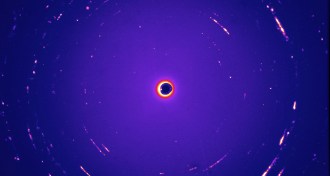 Astronomy
AstronomyDust nabbed by spacecraft may be from outside the solar system
NASA’s Stardust mission captured seven particles that probably come from interstellar space, providing researchers with the first direct samples from beyond the solar system.
-
 Planetary Science
Planetary ScienceSpacecraft films Pluto’s largest moon in orbit
New Horizons spacecraft, en route to Pluto, captures nearly one orbit of dwarf planet’s largest moon.
-
 Cosmology
CosmologyCosmologist’s ‘Cosmic Cocktail’ is a refreshing read
Katherine Freese shares her insights as a scientist studying dark matter and other mysterious components of the universe.
By Andrew Grant -
 Astronomy
AstronomyThe craziest NASA mission ever proposed
In this issue, Meghan Rosen provides an in-depth report on that mission, but without the erroneous conclusion that the Asteroid Redirect Mission has much to do with asteroid defense.
By Eva Emerson -
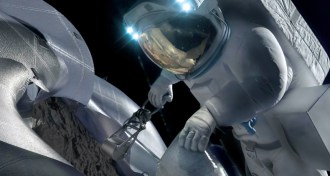 Planetary Science
Planetary ScienceNASA bets on asteroid mission as best path to Mars
NASA wants to bag an asteroid using robotic arms or an enormous sack and place the rock in the moon’s orbit for study. This may keep astronauts working but not, as NASA claims, get them Mars-ready.
By Meghan Rosen -
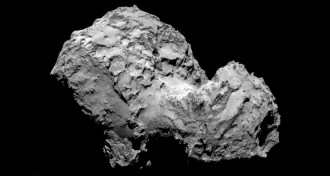 Planetary Science
Planetary ScienceRosetta spacecraft confabs with a comet
After a 10-year chase, ESA’s Rosetta spacecraft has met up with comet 67P/Churyumov–Gerasimenko.
-
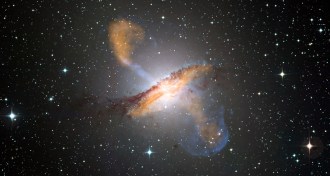 Astronomy
AstronomySingle black hole may be masquerading as a pair
New observations of a recently discovered binary black hole reveal that astronomers may have been seeing double.
-
 Planetary Science
Planetary ScienceThree volcanic eruptions rock Jupiter’s moon Io
Over two weeks last year, the tiny moon Io blazed with three vigorous volcanic eruptions.
-
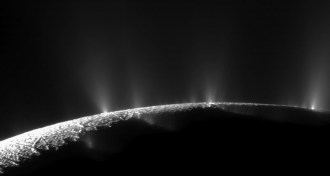 Planetary Science
Planetary ScienceSaturn moon’s geysers draw water from subsurface sea
More than six years of Cassini data indicate that the water jets on the surface of Saturn’s moon Enceladus connect to deep-ocean reservoirs via expanding cracks in surface ice.
-
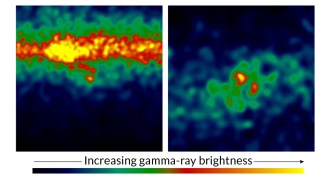 Astronomy
AstronomyGamma rays streaming from stellar explosions stump astronomers
The Fermi satellite detected gamma rays coming from an unexpected source — and astronomers don’t understand what made that possible.
-
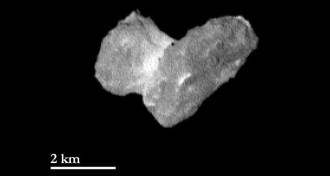 Planetary Science
Planetary ScienceRosetta spacecraft gets better view of comet’s fuzz
News images are giving astronomers a sense of the size of comet 67P/Churyumov-Gerasimenko's coma and the shape of its core.
-
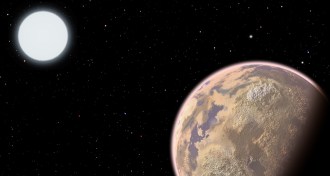 Astronomy
AstronomyWhen looking for aliens, try finding their pollution
Future telescopes may discover civilized aliens by detecting the industrial pollutants called fluorinated gases in exoplanet atmospheres.